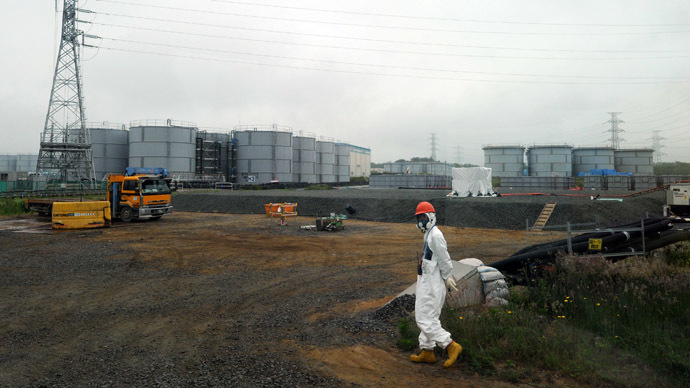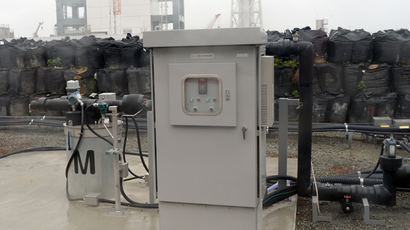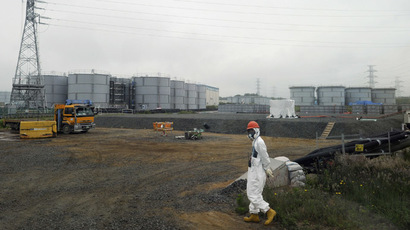TEPCO admits Fukushima-1 reactors leak radioactive water to Pacific Ocean

The operator of Fukushima Daiichi nuclear power plant, TEPCO, has admitted for the first time since March 2011 that crippled reactors continue to leak highly contaminated radioactive waters into the Pacific Ocean.
TEPCO had previously denied suspicions that contaminated water
had reached the sea, despite the fact that levels of potentially
cancer-causing radioactive substances present in ground and
seawater samples at the plant had soared.
"But now we believe that contaminated water has flown out to
the sea," TEPCO spokesman Masayuki Ono said at a Monday news
conference.
According to Ono, officials suspect that radioactive water leaked
from the wrecked reactors, likely seeping into the underground
water system before reaching the sea.
Earlier this month, TEPCO acknowledged that levels of radioactive
cesium-134 in a well at the nuclear power plant jumped by 90
times in just three days. The company said the levels were at
their highest point since the March 2011 disaster.
However, the company’s spokesman insisted on Monday that the
radioactive water’s impact on the ocean would be limited.
"Seawater data has shown no abnormal rise in the levels of
radioactivity," Ono said.
TEPCO said that based on water sample tests, the leaks stay near
the plant reactors inside the bay.
The announcement has confirmed alarming concerns addressed by
Japan's nuclear watchdog, the Nuclear Regulation Authoirty (NRA).
Earlier in July, the organization stated that it “strongly suspected” contamination of ground
waters and possibly the Pacific Ocean.
The head of NRA also said he believed that contamination of the
sea has been continuous since the accident in March 2011, when a
massive earthquake and tsunami triggered three meltdowns in the
Fukushima plant.
"We would like to offer our deep apology for causing grave
worries for many people, especially for people in Fukushima,"
Masayuki Ono said.














